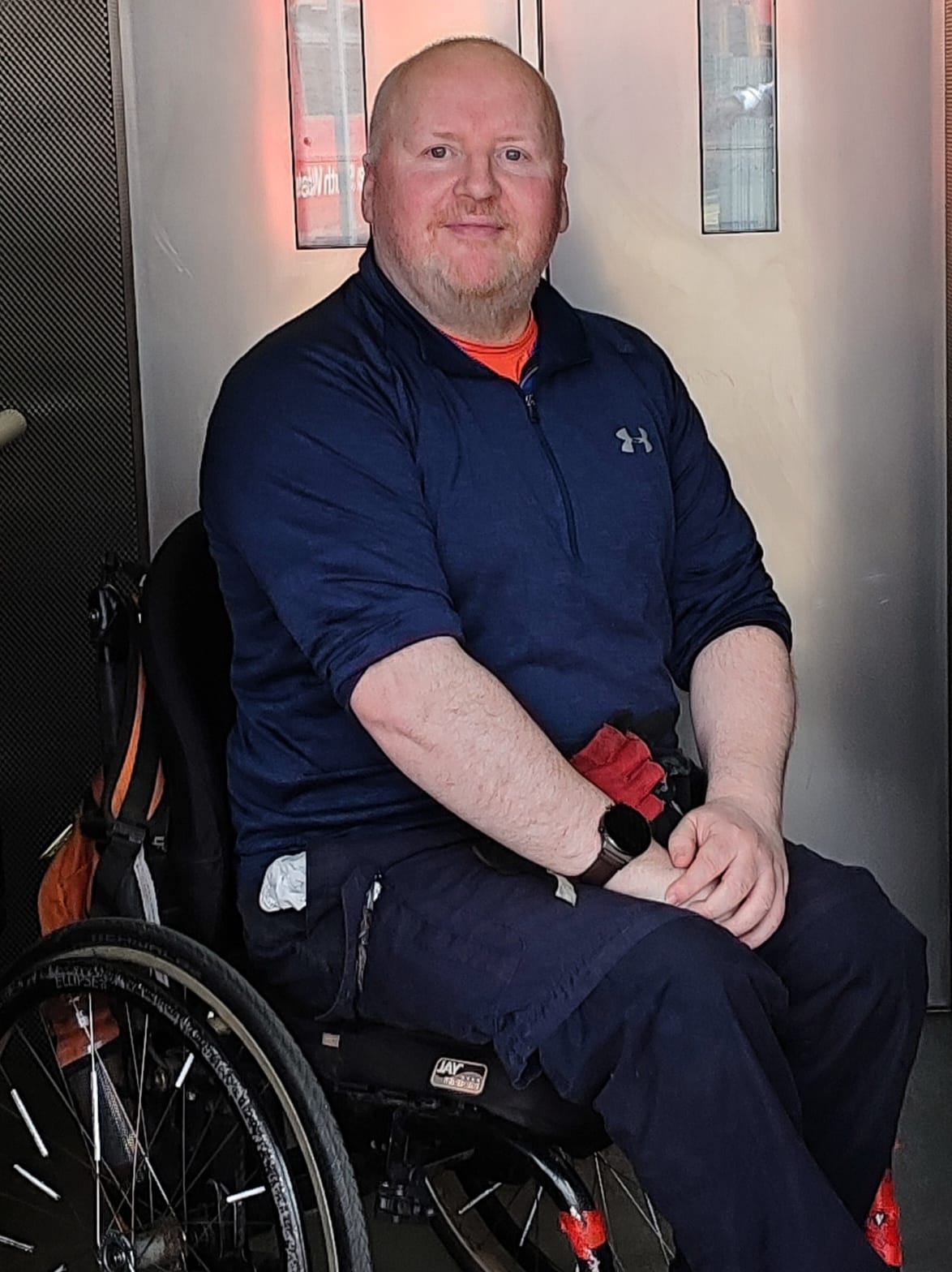Disabled people who want to work say they can’t because of a “chronically underfunded” welfare system and lack of reasonable adjustments made in the workplace.
The author of a major review on how to keep people in work warned on Wednesday that the UK is “sliding into an avoidable crisis” amid an “enormous” cost to employers from ill health among workers.
Former John Lewis boss Sir Charlie Mayfield’s report Keep Britain Working found that poor workplace health costs UK employers around £85 billion a year, and called for both employers and workers to do more.
But, as Pauline Fox-Reid, 57, who is deafblind, told The Independent: “I have a strong work ethic, but I’m battling with a system that doesn’t work.”
The 57-year-old, who lives in Waltham Abbey in Essex, said that she was forced to resign from her job in a pharmacy in 2014 because her request for help with her health condition was refused, and she has been in ill-health retirement ever since.
She stressed she wants to get back into work but faces so many barriers to doing so, including her lack of digital skills, need for other people to help her due to her disabilities and her need for a quiet working environment, otherwise she cannot hear. “I’m lost in a system that doesn’t do people,” she said.

She explained that she has many transferable skills but fears an employer would see some reasonable adjustments as costing them more and so deter them from hiring her.
She is also worried that so much time has passed now that her qualifications could be out of date. “I can't find anyone who will help me or employ me,” she said. And a trip to a job centre once left her with “no practical help at all”, she said, such as a coach to support her in accessing work.
She blamed a “chronically underfunded” system and called for improved accessibility for all.
The new report told of a culture of fear among workers around ill health, a lack of an effective or consistent support system for employers and employees in managing health, and structural challenges for disabled people.
Sir Charlie has proposed a new approach where responsibility for health at work is shared between employers, employees and health services rather than being left to the worker and the NHS. But while he said employers must do more to help their employees, he warned workers must play their part, with ill health now one of the biggest drivers of economic inactivity in the UK.
However, Ms Fox-Reid said potential workers such as herself are trying, but the support is just not there. “People are not going to recover from their long-term health conditions, and the support doesn’t exist.” She went further, saying sick pay is actually still “inadequate” and remains a “real battle” to get.

Dan White from Disability Rights UK said the report “blames disabled people for not working” and “fundamentally misunderstands that people are disabled by societal and workplace barriers, not just by their health conditions”.
He continued: “The report comes at a time when the government is cutting schemes like Access to Work, which we know support us into the workplace, a scheme the report highlights as important to disabled people. But it makes absolutely no criticism of the inflexibility and top-down cultures of employers, their failure to comply with the Equality Act, their inability to create disability inclusive cultures and their failure to adopt modern ways of engaging with their disabled employees.
“The review, like many before it, focuses mostly on employers and what can be done to support them, with little concrete suggestions to bolster disabled people's rights in the workplace. And thus, we struggle to see the impact it will have.”
Jamie McCormock, 53, agreed that support is lacking in the UK for those with ill health, based on his personal experience as well as the last decade he has spent campaigning.
The 53-year-old, who is a wheelchair user, said he wants to work but has not held a formal job since 2017 because “accessibility is such an issue”. “I would like to go back to work for something I can work around and work my health condition around,” he said.
He explained that employers’ attitude to those who have not been in work for more than a year can often be, “It’s not worth the risk.” He also said accessibility requirements can cost thousands of pounds, while the five-day working week is not suitable for all.
He spoke of an experience with a work coach when he told her he wanted to be a rehabilitation therapist or trainer and she questioned: “What makes you think you can do that job?” He showed her his CV that detailed his skills in the area. Then, when he asked her if she had any support that could help him get into a role, or programmes that could help him to set up his own company, she told him “no”, he said.
McCormock, from Chessington, called for changes in the law to improve access to work for those with ill health as well as a shift in the language used around disabled people and access. He said: “You have to change the language from risk to missed opportunity, and have to develop a more flexible system for access to work.”
A DWP spokesperson said: “Following the publication of the Keep Britain Working Review, we’re partnering with more than sixty major and many small employers to reshape how health issues and disabilities are managed in the workplace.
“This builds on our work to help more sick or disabled move out of poverty and into good, secure jobs - including through our Connect to Work programme – and that of the neurodivergent panel to boost workplace inclusivity.”







